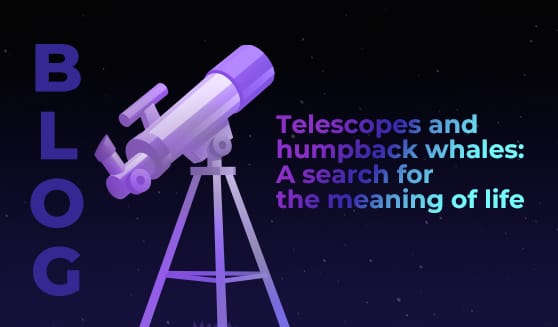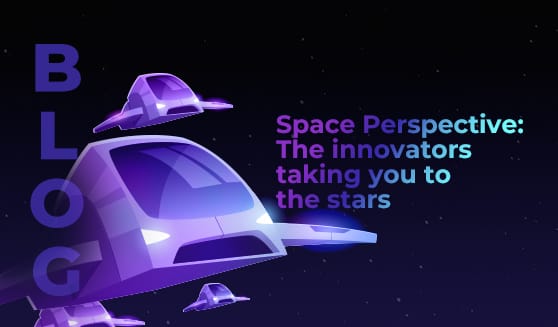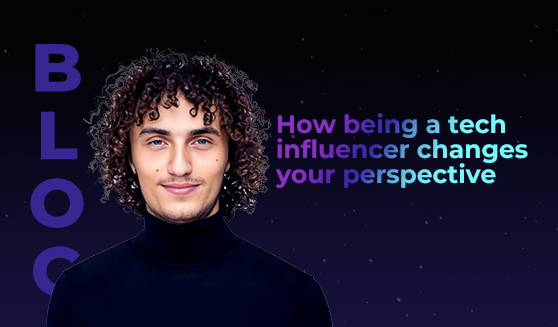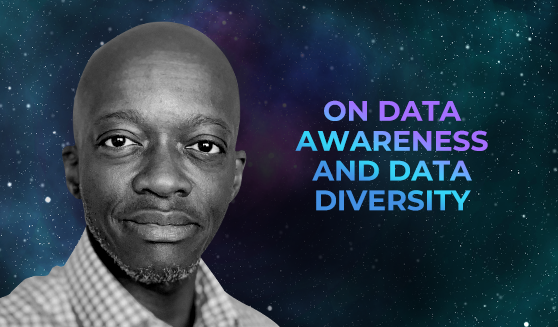
Edosa Odaro (Chief Data Analytics Officer at Tawuniya) is a new Saudi Arabia resident, bringing his huge data science experience to the Middle East. Before he takes to the keynote stage at #LEAP23 we asked him to share just a little of his unique, powerful perspective on data, connectivity, and diversity.
In 2022 you started your role at Tawuniya and moved to Saudi Arabia (congrats!). How have all those big changes been going?
“Thank you! It was less than a year ago that I jumped on a plane to the Kingdom of Saudi Arabia! It’s been a HUGE change – as whilst I have lived in several countries and travelled very widely across multiple continents, the Kingdom of Saudi Arabia is clearly unique in many ways…
“And whilst there are some BIG changes that I have had to adapt to (perhaps driving conditions is one of the most obvious) here are some highlights of my time so far at #Tawuniya:
- we have set up a brand new chief data analytics and privacy office
- we have begun the agile delivery of a mega scale transformation programme
- we have delivered strategically impactful quick wins
- we have initiated partnerships with some of the most remarkable global players
- we have already begun assembling a formidable team across data analytics and privacy…
…and we’re only just getting started.
What have you found most interesting/inspiring about working in Saudi so far? By contrast, have you found any location-specific challenges to data and analytics transformation?
“Interesting/inspiring: Saudi is one of the most digitally connected countries in the world – especially from a national identity and health record perspective – and one only needs to look at the likes of Tawakalna and Absher to see data in action.
“Challenges: data’s value comes from awareness (of what value it can deliver and the culture to enable progress), capability (skill required to leverage this value), and know-how (the leadership and creativity to bring it all together and to make it happen for both organisations and for society at large).
“There is still a lot more work to be done in these areas. Rather than being outward looking, some organisations still benchmark against local companies and sectors. There is so much more that can be achieved in Saudi Arabia and every opportunity to leverage the current economic growth to achieve more.”
What’s missing in the way we (the general, global ‘we’) collect and analyse data right now? How could it be better?
“I think there are some fundamental misconceptions about how data works.
“We often hear that data is an asset and it seems to be a most common catchphrase these days. But the BIG question is ‘what kind of asset is data?’
“To simplify this answer, we can consider two key types of assets. On the one extreme is ‘exclusive’ assets – which gain most of their value by being scarce and by being hoarded (such as luxury watches and lots of everyday assets). On the other extreme are ‘network’ assets – which gain their value in the opposite way: by being shared (such as big events and social media).
“How could it be better: Data as an asset is more aligned to ‘network’ since its value significantly amplifies the more it is shared, connected, and utilised. It is utility that ultimately powers the wonders of Data Science, AI, and Advanced Analytics.”
What does diversity in data mean to you?
“There are far too many viewpoints about diversity – with a lot of these causing either offence or unhelpful polarisation. Yet, I believe that something most of us can all agree on is that, regardless of where we stand on the problems of diversity (or the broader areas included within ESG) there is far more we can do to focus on techniques for achieving tangible solutions.
“Fundamental to these solutions is data. Why? At least 3 key reasons:
- We need good data to MEASURE and assess where we are – to be clear about our current situation and our starting point
- We need to DEFINE in data our target state – our ‘what good looks like’ – and there is NO one-size-fits-all as this differs from company to company; community to community; and even country to country
- We need data and advanced analytics to test hypotheses, predict outcomes, CREATE intelligent interventions – to ensure our desired target state
“The caveat is that there really cannot be a single silver bullet solution, but it is absolutely essential to start with data and utilise data to enable tangible outcomes.”
If you could go back to the start of your career and tell yourself one thing you wish you’d known then, what would it be?
“It would have to be that I should have taken more opportunities. There were times early in my career that I allowed myself to miss opportunities (for example, I originally wanted to be a pilot!) just because I allowed myself to be convinced that they were unachievable. But as soon as I realised that I could be more than I was, my growth trajectory has never really stopped! And I am so grateful for all the opportunities that have come my way and have helped me continue to be an eternal learner.”
Thanks to Edosa Odaro at Tawuniya. Join us at LEAP 2023 to learn more.
